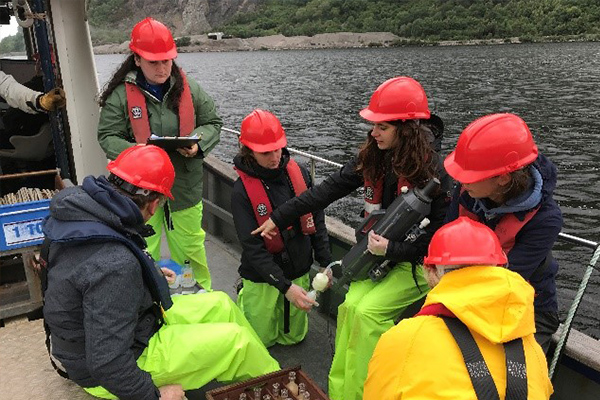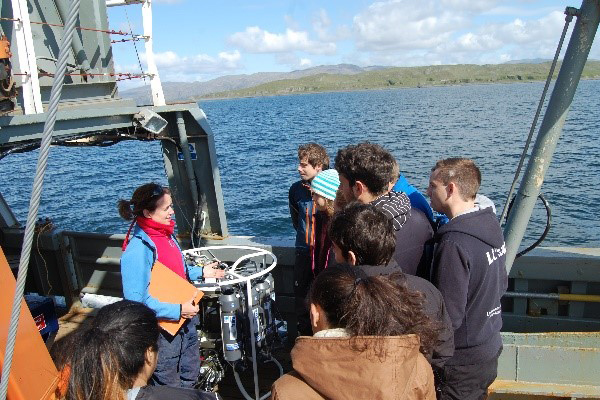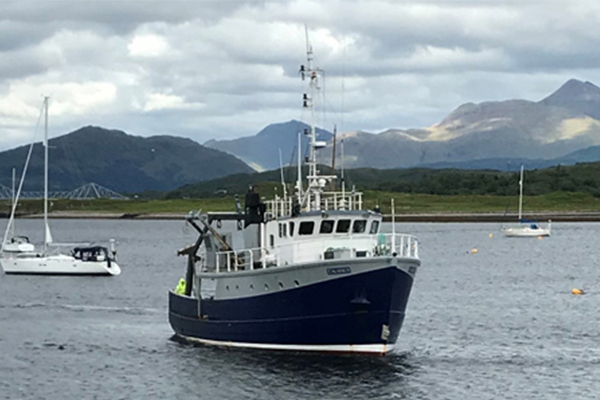Fieldwork
Our Ocean Sciences programmes involve fieldwork at sea on research vessels. You will be directly involved in the collection of samples and data using research grade equipment and instruments, in the analysis of samples in the laboratory, and in the application of data analysis tools and interpretation of data.
This hands-on experience allows you to place theories and ideas gathered throughout your degree programme in context. You will be trained in up-to-date techniques vital for modern observational oceanography.
Year 1
You will carry out fieldwork off North wales and in local waters around Liverpool to introduce you to basic techniques of oceanographic data collection and presentation.

Year 2
Using local waters you will collect samples for key oceanographic parameters, such as temperature, salinity, dissolved oxygen, chlorophyll and plankton, in order to develop skills in sample preservation and laboratory analyses, instrument calibration and data presentation.

Year 3
We all go to the west coast of Scotland (Isle of Cumbrae) to carry out boat-based sampling in the Firth of Clyde and the Clyde Sea. This allows students to use the skills developed in years 1 and 2 towards answering fundamental questions about the coastal ocean, its physics, chemistry and biology.

Spending time at sea will not only provide you with knowledge and hands-on experience in Ocean Sciences but will allow you develop your skills in self-organisation, teamwork and communication and improve your confidence in making observations, attributes attractive to employers both within and outside the field of Ocean Sciences.
The School of Environmental Sciences will cover essential costs of all compulsory field courses - and you will have the option, via our ‘Go Abroad’ programme, to study abroad for part of your degree.
Please note our field class locations vary from year to year, and are subject to change. The above is our current offer for years 1-3.